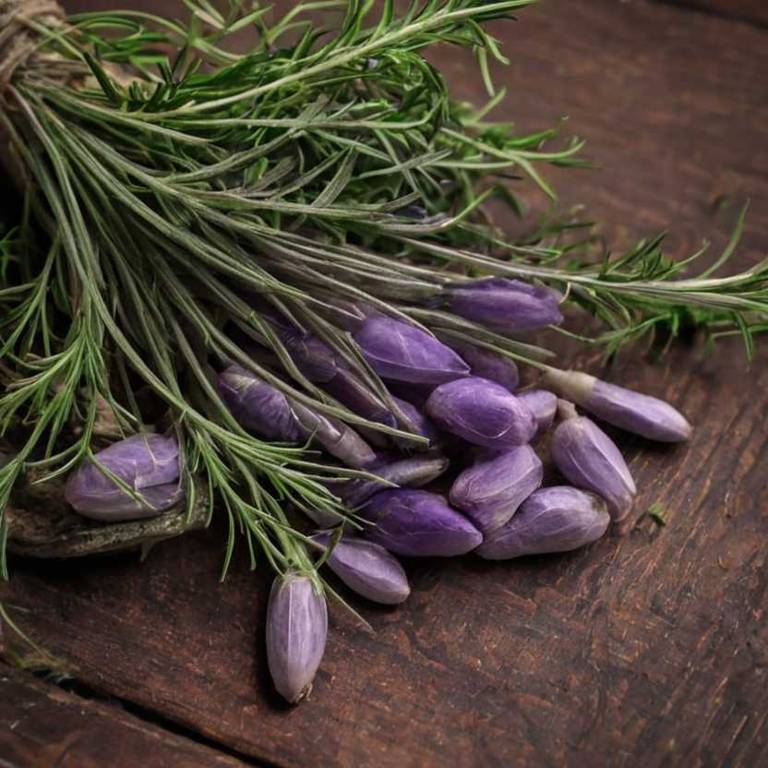By Leen Randell
Updated: Jul 06, 2024
What Are The Medicinal Properties Of Crocus Sativus (Saffron)?

Crocus sativus, also known as saffron, has health benefits such as reducing anxiety and depression, improving heart health, and alleviating menstrual cramps.
The medicinal constituents of saffron include crocin and crocetin, which are responsible for its antioxidant and anti-inflammatory properties. Saffron is often used in traditional medicine to prepare teas, capsules, and infusions for treating various ailments. However, high doses of saffron can cause side effects such as digestive issues and skin irritation.
It is recommended to consult a healthcare professional before using saffron as a treatment.
This article explains the health benefits, active constituents, medicinal preparations, possible side effects, and precautions related to Crocus sativus.
What are the health benefits of Crocus sativus?
Crocus sativus, also known as saffron, has health benefits such as reducing anxiety and depression symptoms, thanks to its high levels of crocin and crocetin.
These compounds have been shown to have a positive effect on mood and cognitive function. Additionally, saffron has anti-inflammatory properties, which may help alleviate symptoms of conditions such as arthritis and other inflammatory diseases.
Its antioxidant properties also contribute to its overall health benefits.
Here's a detailed article about the 10 health benefits of Crocus sativus.
What are the active constituents of Crocus sativus?
Crocus sativus, also known as saffron, has active constituents such as crocin, crocetin, and safranal, which possess significant medicinal properties.
Crocin and crocetin exhibit anti-inflammatory and antioxidant activities, while safranal has antimicrobial and anticonvulsant effects.
These constituents have been shown to have therapeutic benefits in managing conditions such as anxiety, depression, and certain types of cancer, as well as providing protection against neurodegenerative diseases like Alzheimer's and Parkinson's.
Here's a detailed article about the 10 active constituents of Crocus sativus.
What are the medicinal preparations of Crocus sativus?
Crocus sativus, also known as saffron, has medicinal preparations such as saffron capsules, tablets, and extracts.
These preparations are used to treat various health conditions, including depression, anxiety, and insomnia. Saffron's active compound, crocin, has antioxidant and anti-inflammatory properties, making it a potential natural remedy for neurodegenerative diseases and chronic pain management.
Saffron-based products are also used topically to soothe skin irritations and promote wound healing.
Here's a detailed article about the 10 medicinal preparations of Crocus sativus.
What are the possible side effect of using Crocus sativus improperly?
Improper use of Crocus sativus, also known as saffron, increases the chances of experiencing side effects such as allergic reactions, skin irritation, and digestive issues, including diarrhea and nausea.
High doses may also cause anxiety, insomnia, and headaches in some individuals.
Furthermore, saffron can interact with certain medications, including blood thinners and antidepressants, which can lead to adverse reactions and exacerbate underlying health conditions.
Here's a detailed article about the 10 most common side effects of Crocus sativus.
What precautions to take when using Crocus sativus medicinally?
Before using Crocus sativus, also known as saffron, for medicinal purposes, you must take precautions such as consulting a healthcare professional to determine safe dosages and potential interactions with other medications.
Pregnant or breastfeeding women, as well as individuals with certain medical conditions, should avoid saffron due to its potential effects on hormone levels and blood sugar.
It's also essential to source high-quality saffron to minimize the risk of adverse reactions.
Here's a detailed article about 10 precautions to take when using Crocus sativus.